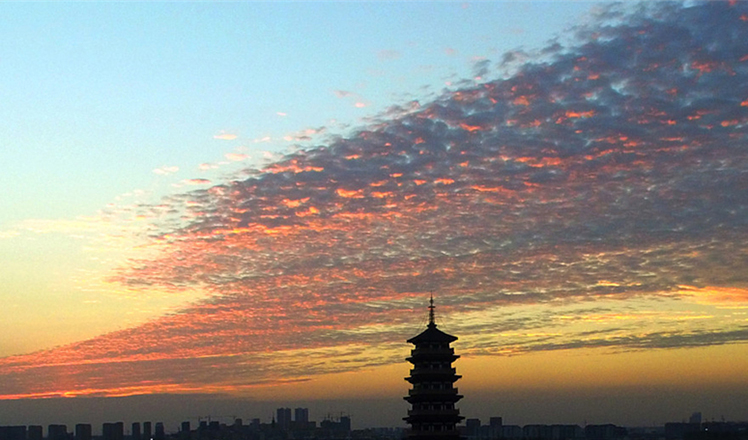Is graffiti zone on mountain a good idea?
Updated: 2016-10-12 06:55
By Xu Jingxi in Guangzhou(China Daily)
|
||||||||
A scenic area in Guangdong province has opened a zone for tourists to write or draw on bamboo shoots to prevent them from scribbling on historic relics or protected natural attractions.
The measure has aroused great controversy.
In the graffiti zone, a bamboo forest covering about 1.3 hectares on Jinzi Mountain, tourists have inscribed messages on nearly 200 of 3,000 or so shoots of bamboo since the zone was opened on Oct 1, the start of the weeklong National Day holiday, according to Zeng Linghua, general manager of the Jinzi Mountain resort.
The graffiti zone has stirred a heated discussion online, with many people criticizing the resort for playing on an inappropriate gesture by some tourists that has destroyed the environment and sabotaged historic relics in the past.
Zeng said he had anticipated that the special zone would cause controversy.
"The special zone is not meant to encourage tourists to scribble on trees," he said.
"But if some tourists have a strong desire to mark their trips by carving their names or messages somewhere, I think it may be a good idea to earmark a zone for them to fully express their feelings so that they won't do so in the rest of the scenic area."
"Rather than simply keep saying no, this may be a more effective way to prevent vandalism," he added.
Zeng said the type of bamboo was easy to grow and is not a protected species.
He said that forest rangers will remove obscene words and illegal messages if they spot any and that shaving off the bark won't influence the bamboo's growth.
No such words or messages have been discovered since the special zone's opening, but a warning board will be set up, Zeng added.
In addition to Jinzi Mountain, the Bamboo Sea, a tourist attraction in Yibin, Sichuan province, earmarked a special zone for visitors to carve on bamboo in 2013.
An administrative director in Bamboo Sea's marketing department told China Daily that graffiti in the scenic area has been reduced substantially since the special zone was opened.
Many tourist attractions in China have fallen victim to graffiti, including the Great Wall.
Photos of a young Chinese couple carving their names on the Great Wall with keys while climbing the ancient wonder during the National Day holiday went viral on social media.
Great Wall authorities set aside areas for graffiti in the Mutianyu section in 2014, but that didn't stop people from carving their names in other places.
"We cannot rely on launching 'forests for carving' to stop tourists from vandalizing tourist sites, just as we cannot reduce theft by launching 'forests for stealing'," said Sun Daojin, a professor of environmental philosophy at Southwest University, in a post on his micro blog at people.com.cn.
"The key to solving the problem lies in tourists' awareness and scenic areas' management."
xujingxi@chinadaily.com.cn
|
A visitor writes on a bamboo shoot in a public graffiti zone on Jinzi Mountain in Guangdong province. Zeng Linghua / For China Daily |
(China Daily 10/12/2016 page5)

 World's top 10 most valuable unicorn companies
World's top 10 most valuable unicorn companies
 Carver finds fame, money in wood sculptures
Carver finds fame, money in wood sculptures
 Missile destroyer to become local military-themed park
Missile destroyer to become local military-themed park
 The world in photos: Sept 26 - Oct 9
The world in photos: Sept 26 - Oct 9
 Classic cars glitter at Berlin motor show
Classic cars glitter at Berlin motor show
 Autumn colors in China
Autumn colors in China
 US second presidential debate begins
US second presidential debate begins
 Egrets Seen in East China's Jiangsu
Egrets Seen in East China's Jiangsu
Most Viewed
Editor's Picks

|

|

|

|

|

|
Today's Top News
Trump outlines anti-terror plan, proposing extreme vetting for immigrants
Phelps puts spotlight on cupping
US launches airstrikes against IS targets in Libya's Sirte
Ministry slams US-Korean THAAD deployment
Two police officers shot at protest in Dallas
Abe's blame game reveals his policies failing to get results
Ending wildlife trafficking must be policy priority in Asia
Effects of supply-side reform take time to be seen
US Weekly

|

|








